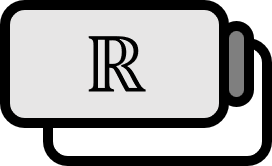Mean Value Theorem in Analysis
Theorem
Let the functions $f$ and $g$ be continuous on the interval $[a,b]$ and differentiable on $(a,b)$. Then there exists $x \in (a,b)$ that satisfies the following equation.
$$ [f(b)-f(a)]g^{\prime}(x)=[g(b)-g(a)]f^{\prime}(x) $$
Note that differentiability is not necessary at the endpoints $a$ and $b$.
Explanation
This is a generalization of the Mean Value Theorem learned in high school and in calculus. If we set it as $g(x)=x$, it becomes the familiar form.
Corollary: Mean Value Theorem
Let the function $f$ be continuous on $[a,b]$ and differentiable on $(a,b)$ as a real function. Then there exists $x\in (a,b)$ that satisfies the following equation.
$$ f(b)-f(a)=(b-a)f^{\prime}(x) $$
Proof
Let us define function $h$ as follows.
$$ h(t) = [f(b)-f(a)]g(t) -[g(b)-g(a)]f(t)\quad (a\le t \le b) $$
Then $h$ is continuous on $[a,b]$ as the sum of continuous functions. Also, it is differentiable on $(a,b)$ as the sum of differentiable functions. Then the following holds.
$$ h^{\prime}(t)= [f(b)-f(a)]g^{\prime}(t) -[g(b)-g(a)]f^{\prime}(t) $$
Also, the following equation holds.
$$ \begin{equation} \begin{aligned} h(a) &= [f(b)-f(a)]g(a)-[g(b)-g(a)]f(a) \\ &= f(b)g(a)-f(a)g(b) \\ &= [f(b)-f(a)]g(b)-[g(b)-g(a)]f(b) \\ &= h(b) \end{aligned} \label{eq1} \end{equation} $$
Now, proving that for some $x\in (a,b)$, $h^{\prime}(x)=0$ holds concludes the proof.
Case 1. If $h$ is constant
For all $x \in (a,b)$, $h^{\prime}(x)=0$ holds.
Case 2. If for some $t\in (a,b)$, $h(t) > h(a)$ holds
By the Extreme Value Theorem, there exists a $x\in [a,b]$ where the function value of $h$ is maximum. Then by $\eqref{eq1}$, $x \in (a,b)$ holds. Then, $x$ is a local maximum of $h$ and differentiable at $x$, so $h^{\prime}(x)=0$ holds.
Case 3. If for some $t \in (a,b)$, $h(t)<h(a)$ holds
This case is similar to Case 2. where there exists a local minimum $x\in (a,b)$ of $h$, and $h^{\prime}(x)=0$ holds.
■
